
North Carolina Bug Identification: Ticks
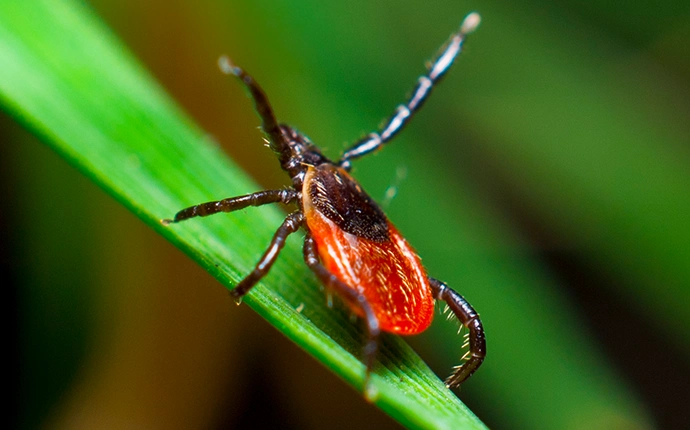
Bug Identifier: Know Your Ticks
Ticks in North Carolina, are commonly found in wooded areas, tall grasses, and even suburban neighborhoods. These small but dangerous arachnids survive by feeding on the blood of other living things, and they can pack a serious punch and transmit dangerous diseases. To keep yourself safe, it’s important that you are able to identify ticks when you spot them.
Tick Identification in North Carolina
In North Carolina, there are several species of ticks that residents and visitors should be aware of.
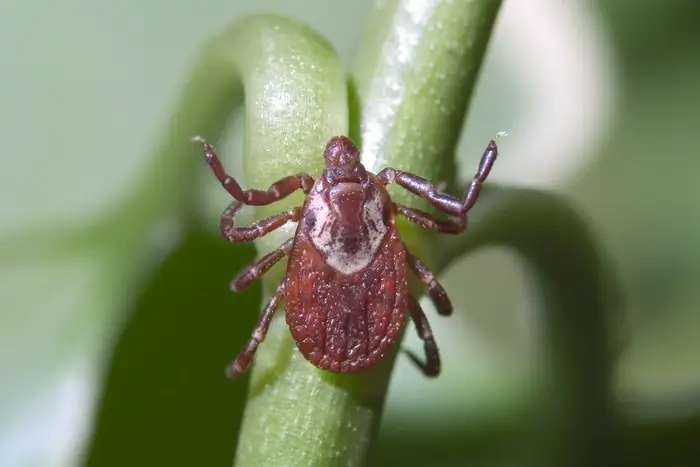
American Dog Tick
The American dog tick, also known as the wood tick, is one of the most prevalent ticks in North Carolina. It is easily identifiable by its reddish-brown body and prominent white markings. Adult female American dog ticks can grow up to 1/2 inch in length when fully engorged with blood. They are often found in grassy areas, open fields, and along wooded edges.
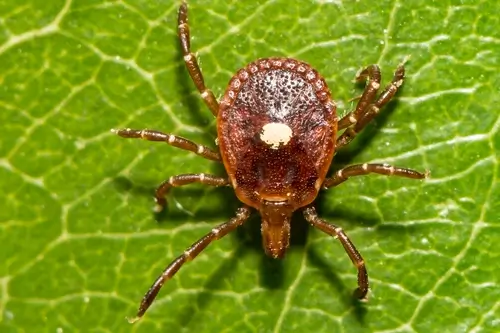
Lone Star Tick
The Lone Star tick is named for the single white spot on the back of the female, which resembles a star. Males do not have this distinctive marking. This tick species is known for its aggressive behavior and is commonly found in wooded areas and tall grasses. Lone Star ticks can transmit diseases like ehrlichiosis and tularemia.
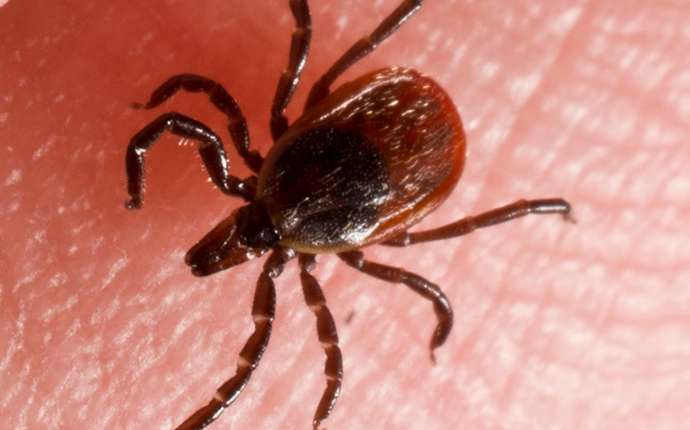
Black-Legged Tick
The black-legged tick, also known as the deer tick, is a tiny tick species known for transmitting Lyme disease. These ticks are dark brown to black in color and have black legs. Both males and females may carry Lyme disease, making them a significant health concern in North Carolina. They are often found in wooded areas and high grasses.
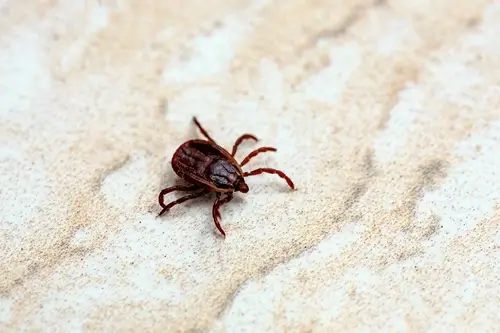
Brown Dog Tick
The brown dog tick is primarily a parasite of dogs but can also bite humans. It is reddish-brown and elongated in shape. These ticks are often found indoors, as they prefer warm and dry environments. Brown dog ticks are known carriers of diseases such as Rocky Mountain spotted fever and canine ehrlichiosis.
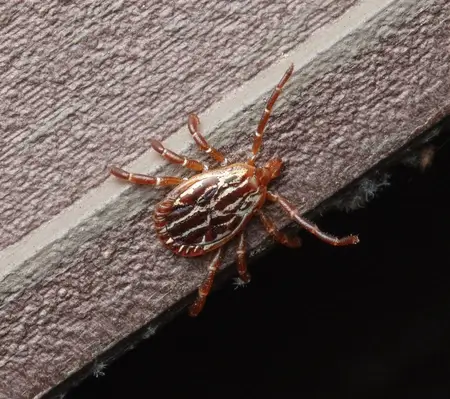
Gulf Coast Tick
The Gulf Coast tick is prevalent in the southeastern United States, including North Carolina. It has a reddish-brown body with distinctive white markings. Gulf Coast ticks can transmit a range of diseases, including spotted fever rickettsiosis and anaplasmosis.

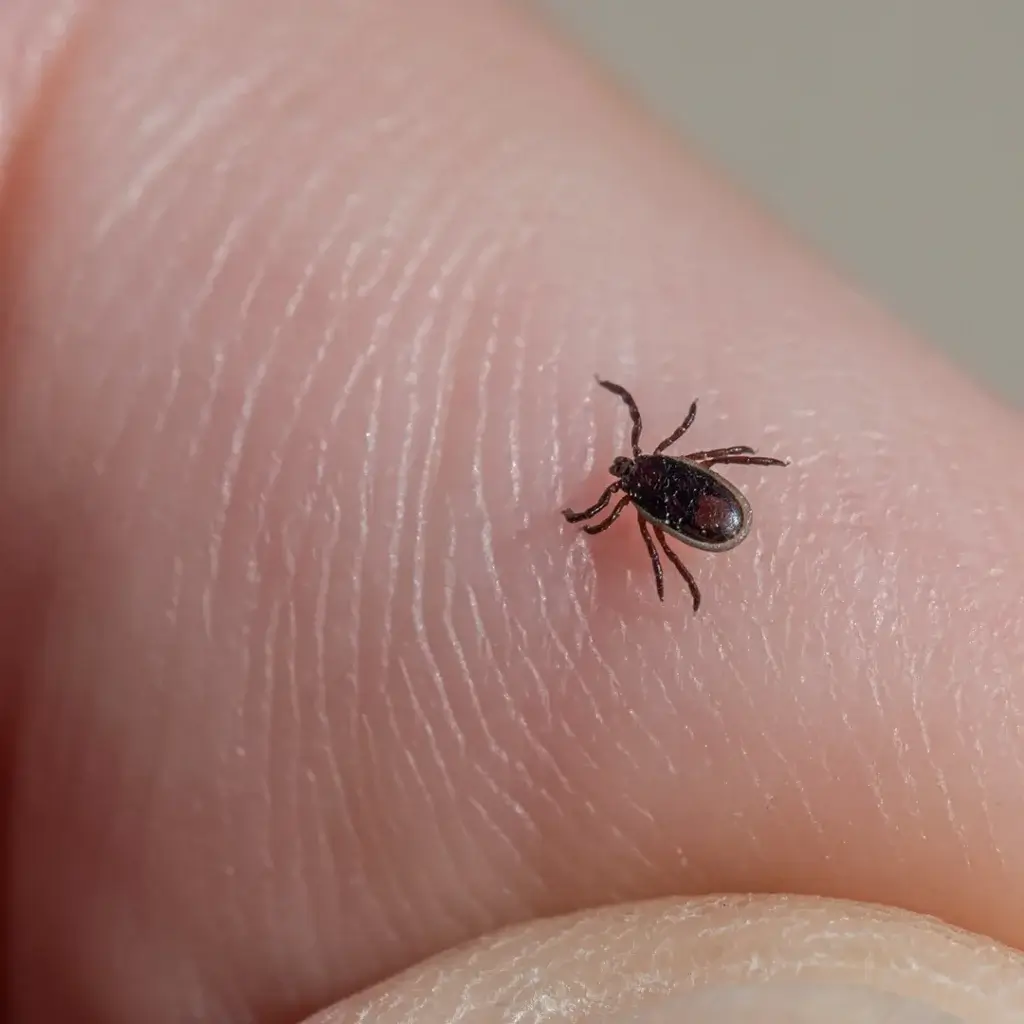
Where Ticks Live
Ticks in North Carolina can be found in a variety of habitats, including wooded areas, grassy fields, and shrubbery. They thrive in locations with tall grass, leaf litter, and a high density of small mammals and deer.
The most common tick species in North Carolina include the American dog tick, the black-legged tick (deer tick), and the Lone Star tick. These ticks are often encountered in outdoor environments, particularly during the warmer months.
How Humans Get Ticks
Humans can get ticks through direct contact with tick-infested vegetation, such as tall grass and wooded areas. Ticks attach themselves to humans or animals when they brush against these areas. Once attached, ticks can feed on their host’s blood, potentially transmitting diseases in the process.
Symptoms & Diseases Caused by Ticks
The specific diseases carried by ticks, and their symptoms, can vary depending on the type of tick and the region where the tick is encountered. Here are some common tick-borne diseases and their symptoms:

Lyme Disease
Commonly carried by deer ticks, lyme disease can result in symptoms such as fever, chills, fatigue, muscle and joint aches, swollen lymph nodes, and a characteristic bull's-eye rash. Later, issues such as neurological problems, joint pain, heart problems, and more severe rashes can arise.

Rocky Mountain Spotted Fever (RMSF)
RMSF is typically carried by the American dog tick, Rocky Mountain wood tick, and brown dog tick. Symptoms include fever, severe headache, muscle aches, rash, and sometimes, confusion or neurological symptoms.

Anaplasmosis
This is usually carried by deer ticks in North America, and can lead to fever, chills, headache, muscle aches, fatigue, and in severe cases, respiratory distress and organ failure.

Ehrlichiosis
Lone star ticks are the main carrier of ehrlichiosis in the United States. Symptoms include headache, fatigue, muscle aches, and in some cases, a rash. Severe cases can lead to organ damage.

Babesiosis
Another disease commonly carried by deer ticks, babesiosis results in fever, chills, fatigue, muscle aches, and in some cases, anemia due to the destruction of red blood cells.
FAQ
Are ticks dangerous?
Yes, ticks are considered to be dangerous; depending on the exact species they are responsible for carrying and transmitting a wide variety of diseases that can make people and animals very ill. The lone star tick is responsible for transmitting diseases like tularemia, Rock Mountain spotted fever and ehrlichiosis. The American dog tick is a primary vector of Rocky Mountain spotted fever and is a known carrier of tularemia and can cause canine tick paralysis. And of course, the blacklegged tick is a well-known carrier of the very serious Lyme disease which is caused by the bacterium Borrelia burgdorferi.
Can Dogs Get Ticks?
Yes, dogs can get ticks. Ticks are common external parasites that can attach themselves to a dog’s skin and feed on their blood. It’s essential to regularly check pets who spend time outside for ticks and take preventive measures, such as using tick repellents and maintaining a tick-free environment, to protect them from tick-borne diseases.
How do you get rid of ticks?
Getting rid of ticks is something that should be handled by professionals, there is no way to ever completely eliminate ticks from a property, but through professional services, their numbers and your family’s exposure to them can be greatly reduced. At A-1 Pest Control, we offer highly effective tick control services in Lenoir and throughout our NC service area. Through our tick control service, an educated and experienced technician will apply products to areas on your property that are harboring ticks; preventing the ticks from being able to develop and therefore reducing their numbers. To learn more about implementing our tick control service, onto your North Carolina property, get in touch with us today at A-1 Pest Control.
How do you prevent ticks?
Preventing problems with ticks on your property can be difficult because these parasitic pests are continuously being introduced onto it by wild animals that are passing through. To help reduce you, your family’s, and pet’s contact with these dangerous pests we want to suggest the following prevention tips.
- To prevent your pets from becoming a host to ticks, use a veterinary-prescribed tick prevention product.
- Routinely check yourself and pets for ticks before coming inside, after spending time outside.
- Trim back wooded areas and areas of heavy vegetation back away from your property line.
- Keep your home’s lawn cut short.
- Remove bird feeders and other wild animal feeders from your property that could attract wild animals to your property.
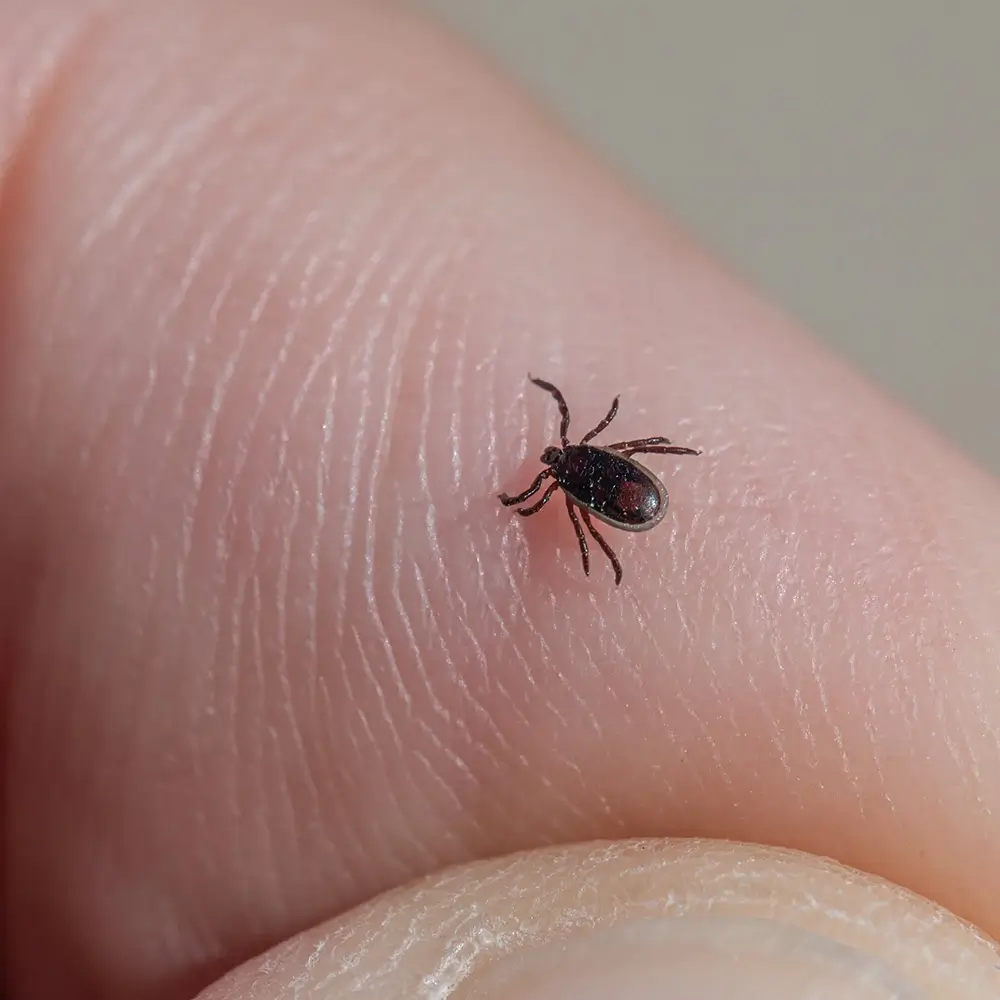
Tick Facts:
Ticks are not insects
While they are commonly mislabeled as insects, ticks are actually parasitic arachnids—a kind of joint-legged invertebrate animal that also describes spiders and scorpions.
Ticks Don’t Start Transmitting Diseases Right Away
Much of the time, a tick must be attached for 36 to 48 hours or more before disease can be transmitted from the parasite to their host.
You’re Most at Risk for a Tick Bite in the Summer
While tick bites can happen all-year round, these little pests are most active during the summer. That means you should take extra care to be on the lookout for them in the warmer months.
What to Do if You Have Ticks on Your Property
Dealing with ticks on your property is essential for preventing tick-borne illnesses and ensuring a safe outdoor environment.

Identify Tick-Prone Areas
First, identify areas on your property where ticks are likely to thrive. Ticks prefer tall grass, dense vegetation, and wooded areas. Knowing their favorite spots will help you target your efforts more effectively.

Keep Grass Short
Regularly mow your lawn to keep the grass short. Ticks are less likely to inhabit well-maintained lawns with short grass.

Remove Leaf Litter and Debris
Ticks often hide in leaf litter, so regularly rake and remove dead leaves and other debris from your yard.

Create a Barrier
Consider creating a barrier between tick-prone areas and your living space using gravel or wood chips. This makes it harder for ticks to migrate into your recreational areas.

Prune and Trim Vegetation
Trim bushes, shrubs, and overhanging branches to reduce tick-friendly habitats. Increased sunlight and reduced humidity will also discourage tick activity.

Use Tick-Repellent Plants
Plant tick-repelling plants like lavender, rosemary, and marigolds around your property. These can help deter ticks naturally.

Regular Tick Checks
Perform regular tick checks on yourself, family members and pets after spending time outdoors. Promptly remove any ticks you find using fine-tipped tweezers. Be sure to grasp the tick close to the skin and pull upward with steady, even pressure.

Professional Help
If you have a severe tick infestation or if you live in a high-risk area for tick-borne diseases, consider consulting a pest control professional for targeted treatment options.

About A-1 Termite Control
If you’re looking for tick control in North Carolina, A-1 Pest Services has you covered, from tick prevention to extermination. Our family owned and operated company has been taking care of our community for over 50 years, with pest control plans that tackle everything from ticks to termites to nearly any pest you can think of. Our commitment to quality work and continued education has set us apart for decades, and we are proud to help our neighbors create happier, healthier homes.
We serve Lenoir, Mooresville, Hickory, Blowing Rock, West Jefferson, and surrounding areas in North Carolina.

